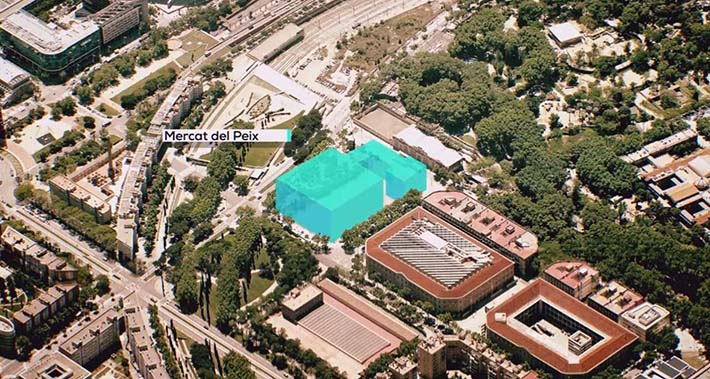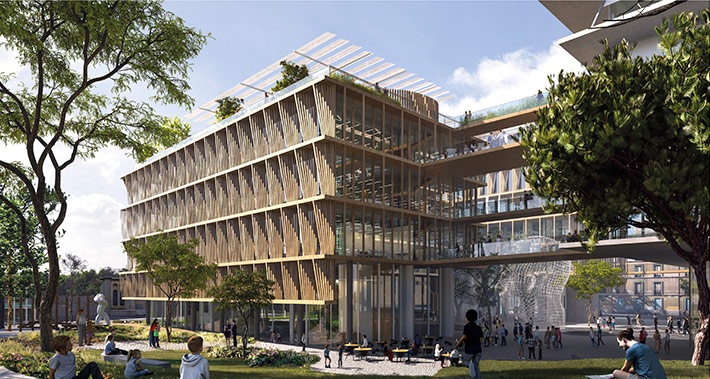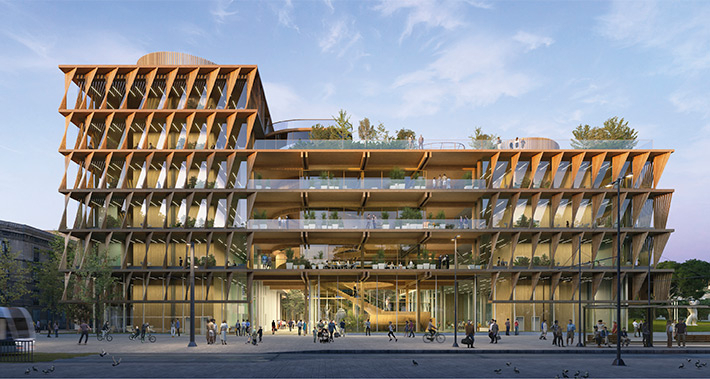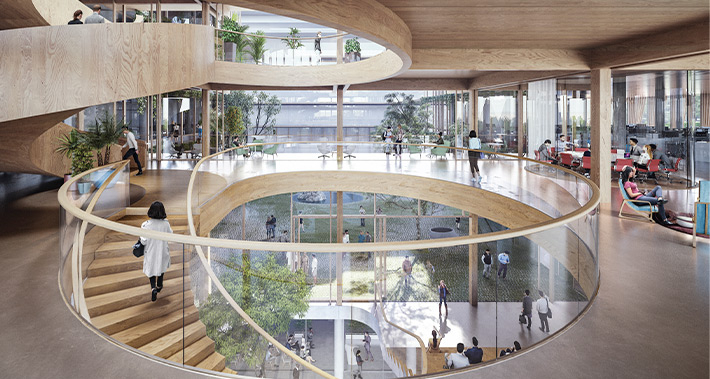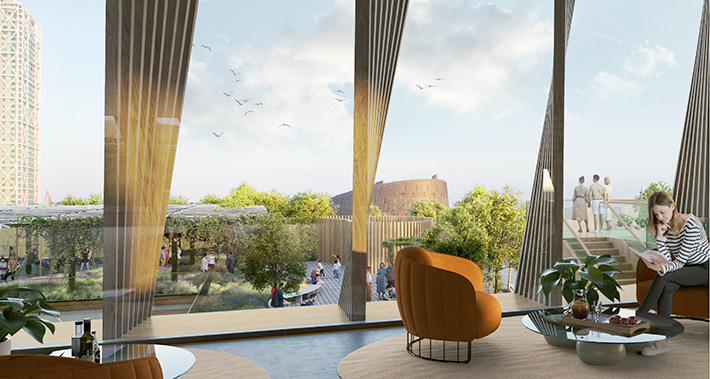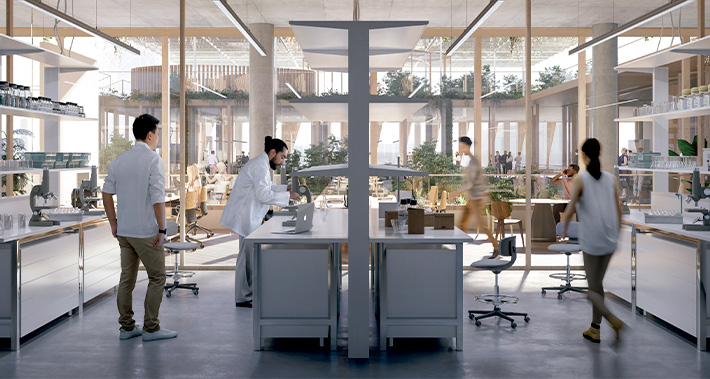BIST will create a new centre for research and innovation in precision medicine (BiomedBIST), which will bring together research groups working in the field of biomedicine.
The Barcelona Institute of Science and Technology (BIST) is a multidisciplinary research institute based on the capabilities and aspirations of seven Catalan centres of excellence: The Centre for Genomic Regulation (CRG), the Institute for Bioengineering of Catalonia (IBEC), the Institute of Photonic Sciences (ICFO), the Catalan Institute for Chemical Research (ICIQ), the Catalan Institute of Nanoscience and Nanotechnology (ICN2), the Institute for High Energy Physics (IFAE) and the Barcelona Institute for Biomedical Research (IRB Barcelona).
At the Fish Market, the BIST will create a new space for research and innovation in precision medicine (BiomedBIST), which will bring together research groups - currently distributed in different centres - working in the field of biomedicine, in order to promote collaboration and a fruitful articulation of different disciplines at the frontiers of knowledge. From there, we will work in close collaboration with the best hospitals in Barcelona to promote the translation of the most advanced genetic, metabolic and cellular knowledge into medical practice.
Researchers working in the new BIST building will address the global challenge of developing tools for precision medicine, from the in-depth study of high-impact pathologies, such as superpathogens, cancer and metastasis, to their relationship with the environment, from a comprehensive integrative view of the individual/patient through the use of genetics, bioinformatics, bioengineering, nanotechnology and other advanced experimental techniques. They will also work on the design and personalised validation of innovative therapeutic approaches, including, among others, cell and tissue biomechanics, cell reprogramming, nanomedicine, immune response modulation and tissue regeneration.
In the new building at the Fish Market, IBE will bring together its research staff - currently split between two centres - in a new, larger building that will allow it to strengthen its research lines, which are:
- Discovering life: To contribute to the knowledge of all forms of life that have inhabited the planet, from the first common ancestor to the current species, by means of an integrative approach combining morphological, ecological and first-generation techniques in genetics.
- Explaining evolution: To understand the evolutionary history of living beings and identify the evolutionary and ecological processes that have shaped them to improve the future of life on the planet.
- Conserving biodiversity: To halt the massive loss of biodiversity through interdisciplinary frontier research in the fields of genetics, ecology and complex systems.
In its new headquarters, the IBE will continue to work to contribute to an informed, critical and engaged society in the face of global challenges, such as the massive loss of biodiversity, climate change and the emergence of pandemics.
At the Fish Market, the UPF will locate its Centre for Research and Innovation for Planetary Welfare, where its own and guest researchers will develop interdisciplinary collaborative projects in the following areas: planetary health, urban science, artificial intelligence, biodiversity loss, complex systems and data science, climate change economics and governance, and global law and governance.
In this sense, the University has launched a strategic initiative to position itself as a global reference in research and innovation around the new concept of Planetary Welfare, understood as an integral objective of human development, based on the evidence that human well-being (in a broad sense) is highly dependent on the environmental and natural balance of the planet and on the strength and legitimacy of the political, economic, legal and cultural institutions of society. The UPF aims to respond to this situation with cross-cutting and interdisciplinary work, providing solutions from the University's different fields of knowledge: from health, biology, politics and economics to humanities, engineering, law and communication.


